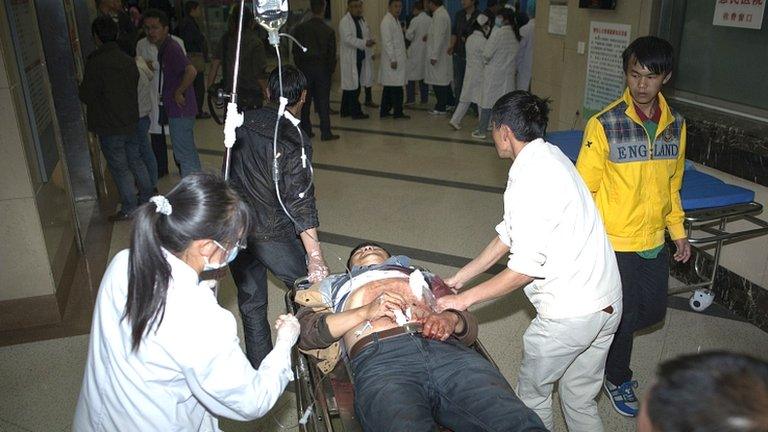Xinjiang: Tight security after deadly violence
- Published
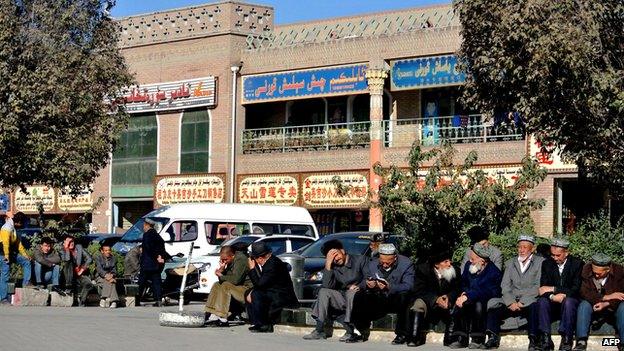
The city of Kashgar is about 200km (125 miles) from Yarkant and is the main city in the area
China has stepped up security in parts of Xinjiang following the region's worst outbreak of violence for months.
Several people in Yarkant county and Kashgar told the BBC the streets were full of checkpoints and police patrols.
They also reported internet and social media services were cut. Separately, a leading Uighur scholar has been formally charged with separatism.
Dozens were killed or injured in the violence on Monday, state media say. Many of the dead were shot by police.
Xinhua news agency said a knife-wielding gang attacked a police station and government offices in Yarkant, which is known as Shache in China.
The BBC's Damian Grammaticas in Beijing says it appears that among those killed were police officers and ethnic Han Chinese settlers. Dozens of people were injured, possibly by police firing.
Confirming what happened is difficult, as information is tightly controlled in China. Xinhua's article came out only several hours after international media outlets including the BBC reported the violence.
The BBC made several calls to various Xinjiang government offices but officials refused to answer questions.
A report by The Global Times quoted an unnamed insider as saying that the incident began when police checkpoints at Elixku discovered explosives, which led to clashes between the police and "attackers".
Some of these attackers escaped and later recruited others to attack the local government and police station, the report said.
But activists have disputed such accounts, saying the violence erupted as members of the local Uighur population protested against a crackdown on Muslims observing Ramadan.
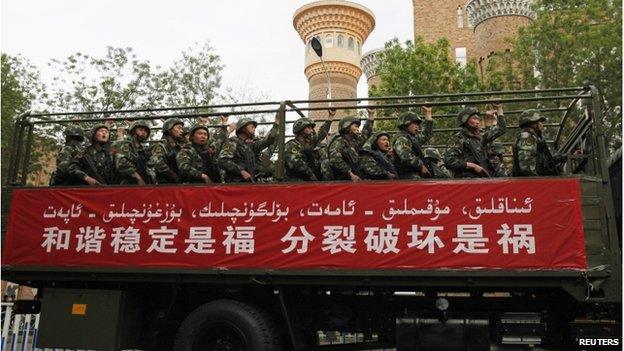
Chinese authorities have stepped up the security presence in key Xinjiang towns and cities
Groups outside China representing the Uighur ethnic minority say China's policies towards Muslim Uighurs are repressive and cause significant resentment. The groups said they fear the latest violence would lead to even harsher policies towards Uighurs.
On Wednesday, prosecutors in the Xinjiang capital Urumqi formally charged prominent Uighur academic Ilham Tohti with separatism.
Professor Tohti, who says he is innocent, was detained in January and his case has drawn international criticism.
He has been critical of China's treatment of Uighurs but there is no record of Mr Tohti ever having supported the cause of separatism, BBC correspondents say.
Yarkant county lies in Xinjiang's far west, near the border with Tajikistan. The area is seen as the heartland of the Uighur minority.
Tensions between Uighurs and Han Chinese migrants have been rumbling for years, with some Uighurs opposing Chinese rule in Xinjiang.
But in recent months there has been an upsurge in Xinjiang-linked violence that authorities have attributed to Uighur separatists.
In May at least 31 people were killed when two cars crashed through an Urumqi market and explosives were thrown. In March, a mass stabbing at Kunming railway station killed 29 people.
In response Chinese authorities have launched a year-long security campaign which includes increased police and troop presence in key cities and towns in Xinjiang.
Scores of people have been arrested, and some sentenced to lengthy jail terms or death, as part of the crackdown.
- Published30 July 2014
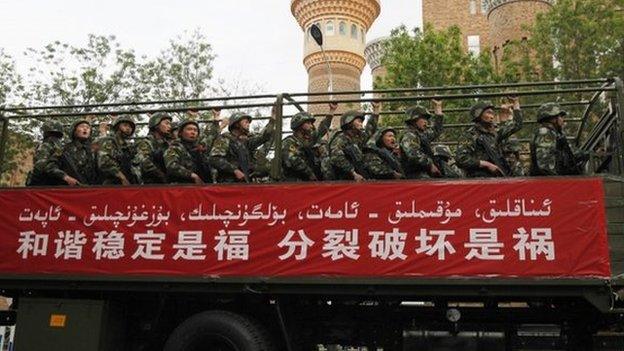
- Published23 May 2014
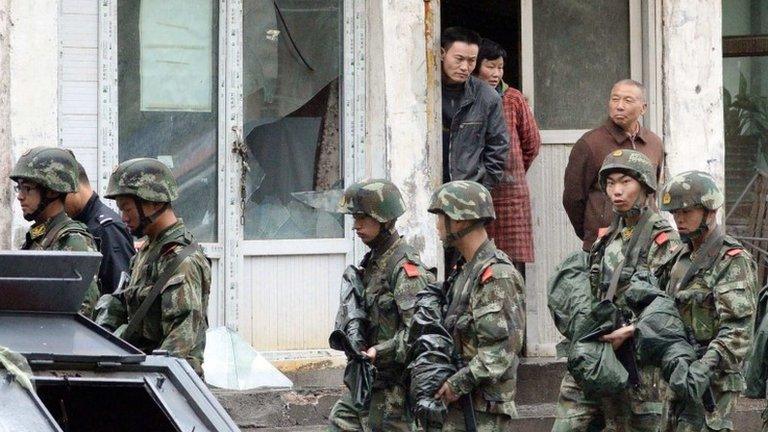
- Published26 September 2014
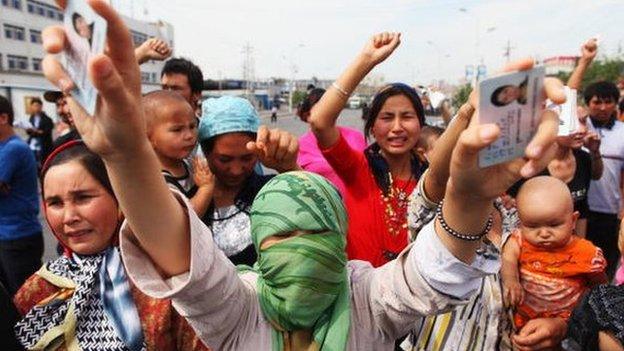
- Published23 May 2014
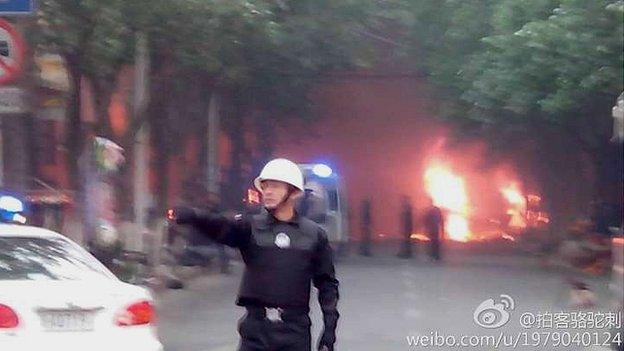
- Published2 March 2014
